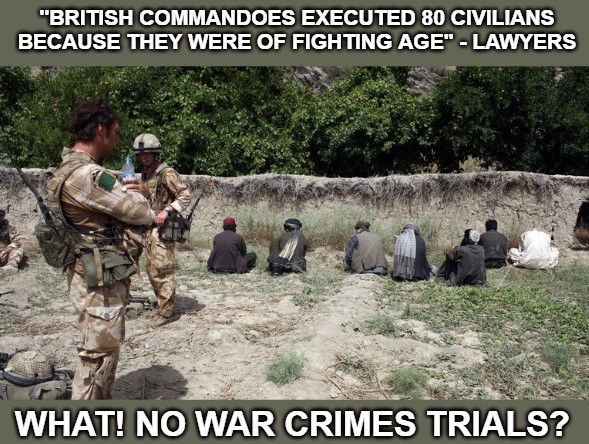

CHURCHILL AND THE BOER WAR ‘There is only a means, the resistance of the Boers to break; namely the toughest oppression.
In other words, we need to kill the parents, so that the children have respect for us.’ ~ Winston Churchill, Journalist, Morning Post. NOTE: Boer concentration camp deaths 28,000 of whom 22,074 were children under 16 years of age.
The British Empire was at war with the Transvaal and the Free State, and it was slowly winning. Most women across the empire believed the war was just and necessary. That was, after all, what they had been taught to think by media. But one of them was different.
One woman among millions, read the news reports and scratched her head. And frowned when the dots did not connect. When she heard that Boer civilians were being treated inhumanely, she was the only one who would not let others soothe her conscience and do her thinking for her. She bought a ticket for South Africa and set sail to investigate in person.
What she discovered defied description. She had believed that there was just one concentration camp. Instead, she found there were 45. They were comprised of captured civilians who had been herded behind barbed wire fences to make the country uninhabitable for the commandos in the field. Old men, women and children. She had been told that they were refugees, which the Crown was taking care of for humanitarian reasons. The concentration camps were for their own safety. That is what they told her. But that’s not remotely what she saw.

Instead, she discovered that the people in these camps were dying at an unbelievable rate – dying of disease, malnutrition, exposure to the elements and neglect. They were being abused and humiliated, the meat rations that they were given were often rotten or came from animals that had died of disease and exposure. Already entire families had died out. And every day some processions lead to cemeteries where the dead were being buried faster than coffins could be made.

She was utterly shocked, and for a while did not know what she could do. But she knew she had to at least try to do something.
In 1901 Emily Hobhouse was a nobody. She was just one more nameless Englishwoman. Young, unmarried and insignificant. Her father was dead and her family wasn’t rich or influential. What could she possibly have done? She seemed powerless.
Or was she…? Emily Hobhouse did not see it entirely that way. After she had visited the death camps, she returned to England – armed to the brim with statistics, testimonials, records of interviews, and photographs. And when they refused to listen, she went to press. That’s when the fireworks began.
The Julian Assange of her time, when she presented the truth to the British public, the knowledge was sensational. The opposition howled that the military authorities were using ‘methods of barbarism’ to conduct their war.
Her embarrassing revelations shook parliament to its foundations and made the powerful men who had instigated the war scurry to deny, cover and dismiss the facts. And yet, no matter how they tried, the young Englishwoman from nowhere had uncorked a storm that refused to go away.

Suddenly the obscure young woman became famous. And threatening. Armed with no sword except truth, she had become a weapon more dangerous than anything her country’s enemies possessed.
They responded predictably, by fighting back with denials and character assassination. They slated her as a traitor, called her disloyal, and a colluder with her country’s enemies. But still, some rubbed their chins thoughtfully and said, ‘I wonder….’
Not surprisingly, Emily Hobhouse did not win this round, but curiously, she also did not lose. Perhaps one could say that she had achieved at least a draw. Or maybe something more, for after her revelations, the Fawcett Commission was established – and tasked to report to parliament on conditions in the British concentration camps.

As the investigators set sail, the powers in control scurried to hide, obfuscate and camouflage the dreadful conditions as best they could. But even after all the sanitizing, the report of the Fawcett Commission was damning when it was released. It has blemished and embarrassed the records of civilized warfare for a hundred years, and continues to do so to this day.

Yet, something enormously good did come from it. After the revelations had been made, a significant amount of reform was grudgingly introduced. It was still very, very far from adequate, and people kept dying like flies. But the death rate did drop sharply, and living conditions did improve enough to allow at least a chance of possibly surviving the confinement until the end of the war.
Upon the high plains, hollow-eyed families huddled beneath frost and snow in their canvas tents and realized that now at least, some of them would live as God had ordained.
At Emily Hobhouse’s next trip to South Africa, the military authorities denied her entry and repatriated her back to England. They had had enough of ‘that damned Englishwoman’ as they referred to her. But she had set a course of events in motion that would continue even in her absence.
Unfortunately, her intervention had come too late for many, though. In the end, between 27,000 – 29,000 white women and children died in the camps. A frightful percentage of a small population. Of the women and children in black concentration camps, no meaningful records were kept and their losses can only be guessed at. Emily was not even able to get to them. Historians seem to think the number must have been the same, or greater.

The story did not end there, though. After the war, Emily Hobhouse came back again, to a land which she had come to love, and to friends who had adopted her as family.
She worked tirelessly to help the beaten and battered remnants of her country’s enemies. She raised money and helped to teach crafts and skills by which a nation in burnt-out farms and towns might have a hope to uplift themselves again.
The impact that this one insignificant young woman had on the lives of thousands cannot be exaggerated. Due to her efforts literally thousands lived, who would otherwise have perished in the concentration camps. Those survivors had children who had children, who had grandchildren and who are alive today because of her. Some of those reading these very words right now, live because of her.

In the land of her enemies, her name was held in the greatest esteem and she was received with dignity and honor. In later years her face would be printed on postage stamps. A town would be named after her, as well as streets. One of South Africa’s first Daphne class submarines was named after her. And even children were given the name of Emily. But how else could a nation express its gratitude?

Unbeknown to her, the wife of President Steyn, the former leader of the Free State, had led a fund-raising initiative, with which the grateful survivors of South Africa were able to buy a house for Emily in England. Now at least, she had a home.
In its purest form, history will observe that Emily Hobhouse never married and had no children. But in a sense that is not true. She had been adopted into the hearts of an entire nation. By doing so, she had become the cherished mother, sister, and daughter of a multitude.
Emily Hobhouse died at the age of 66, alone and penniless in England. To the British, she had been a traitor. A trouble-maker. She had embarrassed and exposed too much. Her death went unreported in the local media. No arrangements were made for her funeral. It was hoped that she would finally fade away into obscurity. The authorities sighed with satisfaction. It was a relief to finally be rid of her. The damned Englishwoman was gone.
But they were to be disappointed one last time. Mrs. Steyn arranged for the repatriation of her remains. In South Africa, her ashes were received not as an embarrassment, but as something precious. Her state funeral was gigantic and was attended by hundreds of mothers and children who had survived because of her.

There they stood, and with them their men, the wizened old war veterans on their horses, who bowed their heads as her remains passed. The last of the Boer generals also stood there – with hats removed, solemn and sad, but with eyes that gleamed with tears at the farewell of a friend of a grateful country.
And then there was Mrs. Tibbie Steyn – who had become the mother of our nation. She received her English daughter home with quiet dignity. And watched as they laid her hero into a grave at the base of the Women’s Monument in Bloemfontein.
There her grave can be found today – simple and unadorned as she had lived her life. South Africa remembers Emily Hobhouse on this, the day that she had been born. And honors her memory forever. (9 April 1860 – 8 June 1926).

NOTE: Fast forward to 2024 Emily Hobhouse would be sharing a cell with whistleblower Juliane Assange.
Categories: History




















Hi Mike, Excellent ! Be blessed! Your words gave me goosebumps because I lived amongst the Boers for three decades ! As for your end note, you’re so right !NOTE: Fast forward to 2024 Emily Hobhouse would be sharing a cell with whistleblower Juliane Assange. Michelle
LikeLiked by 2 people
A big story, Michelle but it has to be told – the world needs to know.
LikeLiked by 1 person
Yes, that is why I reacted so promptly !
LikeLiked by 1 person
Wonderful Story of a Remarkable Woman ………..
LikeLiked by 1 person
Inspiring….. very
LikeLiked by 1 person
Good lord. I am sobbing like a baby.
Such a lovely young woman. Beautiful, strong, and true.
She is all of the finest qualities that live in the white race.
Saint Emily! Saint Emily!
LikeLiked by 2 people
Beautiful comment (heart)
LikeLiked by 1 person